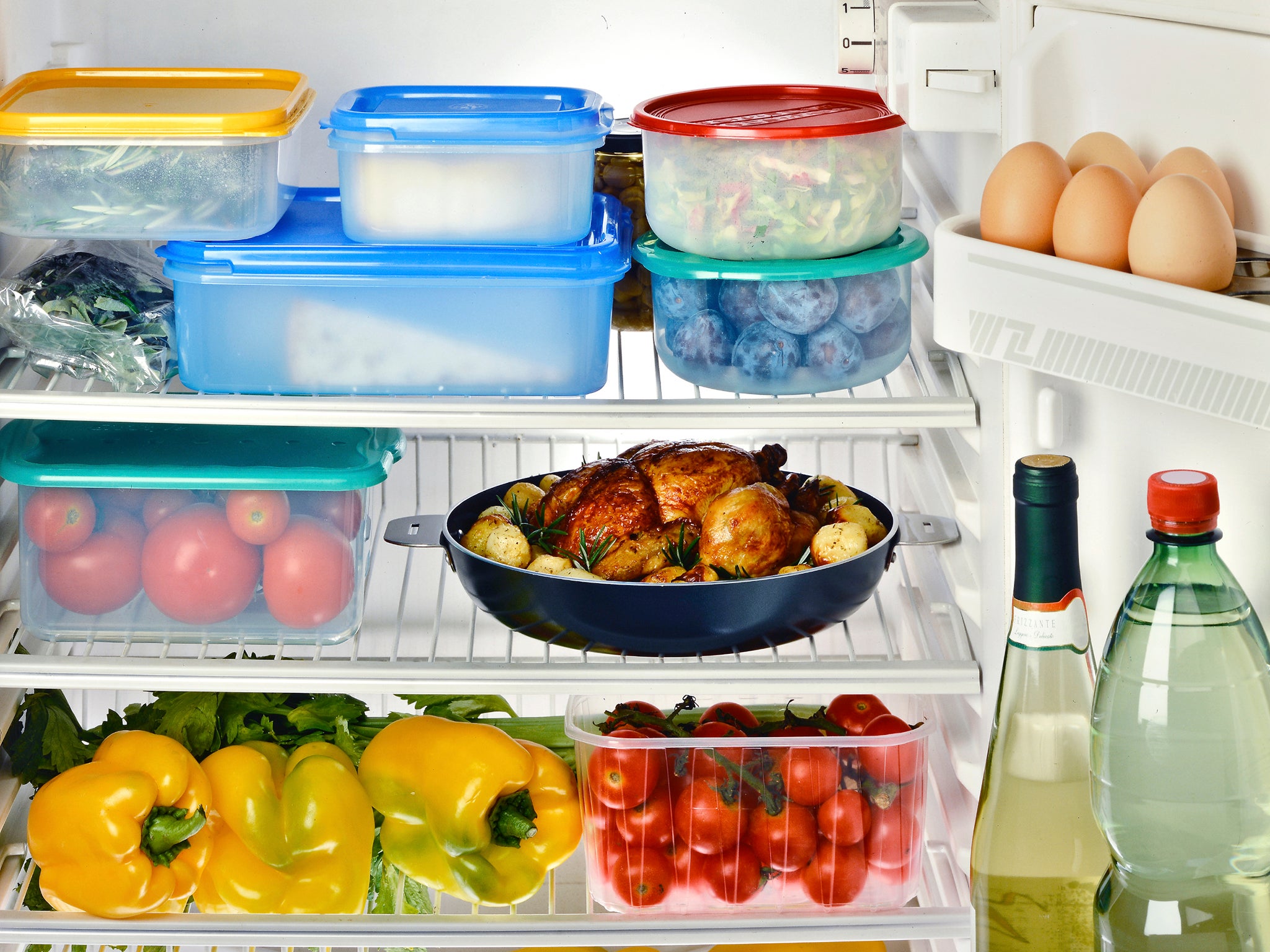How long you can keep food and drinks in your fridge
We consulted StillTasty, an online guide to shelf life, to create a list of common fridge items and their lifespan

That bacon you opened last weekend won't stay fresh in your fridge forever.
In fact, there are some guidelines for how long you should keep food and drinks before they go bad.
First, make sure your refrigerator is set at 40 degrees Fahrenheit or below, which is the temperature recommended by the USDA.
If the label has a “sell by” date, consume the food item accordingly.
It's worth noting, though, that a label's “sell by” date only indicates when the product will be of “optimal quality,” according to the Natural Resources Defense Council. You can probably still safely eat something that's just past its expiration date.
We consulted StillTasty, an online guide to shelf life, to create a list of common fridge items and their lifespan. StillTasty uses government sources like the USDA, the FDA, and the US Centers for Disease Control and Prevention, in addition to food manufacturers.
Here's how long your favourite foods can survive in your fridge after you open them.
Alcohol
Beer: 1 day if kept tightly covered
Champagne: 3-5 days (The champagne may go flat before then, but it will still be safe to consume.)
Wine, red and white: 3-5 days (Take red wines out of the fridge an hour before serving to bring it back to room temperature.)
Condiments
Barbecue sauce: 4 months
Hummus: 1 week
Ketchup: 6 months
Maple syrup: indefinite
Mayonnaise: 2-3 months after the “sell by” date
Mustard: 1 year
Dairy
Brie cheese, sold in wrapped wedge: 1 week
Cheddar cheese, shredded or sliced, commercially packaged: 5-7 days
Dip, dairy-based: 1 week
Eggs: 3-5 weeks
Milk: 1 week after the “sell by” date
Mozzarella cheese, fresh, high moisture: 2 weeks
Parmesan cheese, commercially grated and packaged: 3 months after the “sell by” date
Yoghurt: 7-10 days after the “sell by” date
Fruits and Vegetables
Apples: 3-4 weeks
Avocados, cut: 2-3 days (To avoid browning, squeeze a few drops of lemon or lime into the flesh and tightly wrap in plastic wrap or aluminum foil.)
Blueberries: 1-2 weeks
Broccoli: 3-5 days
Carrots: 2-3 weeks
Celery: 1-2 weeks
Grapes: 5-7 days (To avoid added moisture, don't wash the grapes until you're ready to consume them.)
Lettuce, pre-washed salad mix in bag: 3-5 days
Orange juice: 7-10 days
Peaches: 3-5 days once ripe
Raspberries and strawberries: 2-3 days
Meat and Poultry
Bacon: 1 week
Beef, lamb, pork, and veal: 3-5 days
Ground beef and ground turkey, fresh, cooked: 3-4 days
Ground beef and ground turkey, fresh, raw: 1-2 days
Lunch meat and ham: 3-5 days
Poultry, cooked: 3-4 days
Poultry, raw: 1-2 days
Seafood
Salmon, shrimp and Tuna (including yellow fin), fresh, cooked: 3-4 days
Salmon, shrimp and Tuna (including yellow fin), fresh, raw: 1-2 days
Sushi: 1 day
Read more:
• Tony Blair's property empire is worth an insane amount of money
• BUDGET: People in the UK who let out their homes on Airbnb got a £1,000 tax break
• 19 things successful people do in the first 10 minutes of the workday
Read the original article on Business Insider UK. © 2015. Follow Business Insider UK on Twitter.
Join our commenting forum
Join thought-provoking conversations, follow other Independent readers and see their replies
Comments